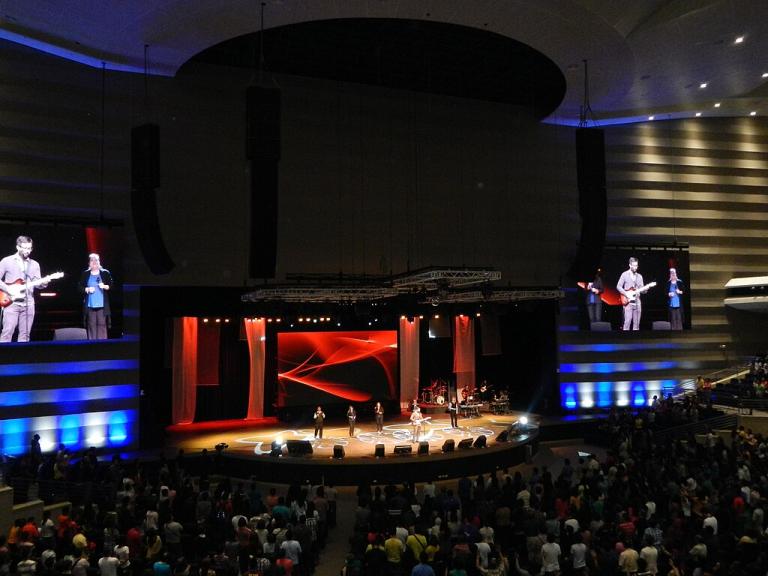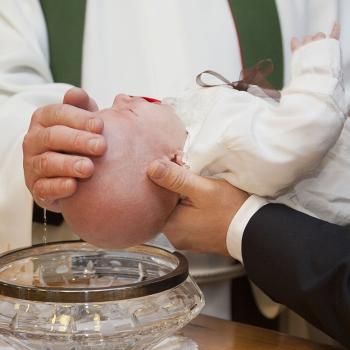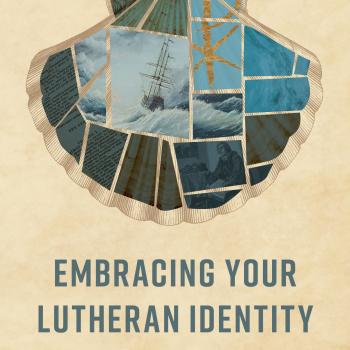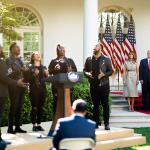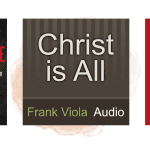The largest group of Protestants in the United States is now the non-denominationals. As of 2020, there were 44,319 non-denominational congregations with 21 million people attending them. Being non-denominational is so popular that many congregations that are affiliated with a denomination play that down, repainting signs that used to read something like “Community Baptist Church” to “Community Church.”
The ecumenical movement of the mainline liberal Protestant churches of the 1950s, which sought to unite all the denominations into one generic mega-denomination has mostly failed. But their opposite pole–conservative evangelicals–have mostly succeeded with the opposite strategy: establishing countless independent congregations that hold to a generic evangelicalism.
Historian Lisa Clark Diller has written a defense of denominations at Anxious Bench. She is an Adventist, which is a very distinctive brand of Christianity, but even some Adventists want to be non-denominational. In her post, Still Adventist? Why Retain Denominational Identities, she raises some excellent points about why particular denominations are helpful. Read it all, but I want to highlight a few of her points and comment on them, Lutheran that I am.
Whatever books you’re reading or sermons you’re listening to or songs you’re singing, they don’t come out of nowhere. The people who lead non-denominational congregations all have theological training that reflects specific commitments within the Christian faith.
True! Non-denominational churches still have their own implicit, if not explicit, beliefs and practices that align them with specific “denominational” traditions. Does the local non-denominational megachurch baptize infants? Does it urge people to “make a decision for Christ”? What does it teach about the Lord’s Supper? I bet I can guess. Nearly all non-denominational churches are Baptist in their theology. Some are Pentecostal, adding speaking in tongues. Some are Reformed. I’ve even heard of one that is Lutheran. But the non-denominationals don’t fully escape what caused denominations.
To be sure, there are some that purposefully avoid taking a position on the contentious theological issues that divide Christians. Members–well, some non-denominational churches don’t have membership, but you know what I mean– can have their own opinions on many doctrinal matters. That means, though, that church teachings have to be restricted to just the basics, with a bigger focus on moralism, therapy, and “successful Christian living.” These congregations try to present a generic Christianity, but sometimes that is not enough.
There’s a seduction to the idea of being spiritual but not religious, or to saying we don’t like organized religion. It’s the desire to be pure, the desire to not have other people who are messed up ruining our experience.
This point refers mainly to the “Nones,” but it does speak to church-hopping and the never-ending search for the perfect congregation. Such perfectionism is the bane of Christianity, grounded as it is in a spirituality of good works rather than the gospel of sinners finding forgiveness. But perfect congregations don’t exist, nor do perfect perfectionists.
God’s sheep know who Jesus is and Jesus knows them. And there’s the assumption they will be gathered around that relationship. Whatever we call that gathering, it requires organization.
Hence, organized religion. Even non-denominational churches organize themselves, certainly internally, but often externally, with other congregations. They start “satellite campuses.” Or form “networks” of like-minded non-denominational congregations. Or form “associations” to support each other in common enterprises. These are not that different from denominations!
I have heard one Christian writer quoted this way: “Saying you’re going to teach your children to be spiritual but not religious is like saying you’re going to raise them to be lingual, but not give them a particular language.”
Great quote! Of course it refers mainly to the parental mindset of not raising children in a particular religion so that they can make their own decision later on. (Notice the secularized Baptist assumptions even here: Children can’t have faith of their own; faith is a decision.) But it can also speak to the assumption that we don’t need a particular theology. “I want to be Christian, but I don’t want particular beliefs.”
As soon as we start sharing resources, asking someone to get out the spreadsheets, voting on mission statements, having membership ceremonies (such as confirmations or baptisms), putting people in charge of branding or communication, passing along institutions to future generations–we have something that starts looking like a denomination.
The practices of non-denominational congregations–as well as the denominational congregations that pretend not to be denominational–are actually quite similar to each other: they typically employ contemporary Christian worship, contemporary Christian music, and the latest tactics recommended by the church growth movement. They are often megachurches or aspire to be. Thus, they have their own liturgy and their own polity.
In not being governed by a larger church organization or hierarchy, their polity is “congregational.” But that is the way that many “denominations” operate.
All of this is to say that non-denominational churches are a denomination, a word which originally just meant a “naming.” “Non-denominational” is the name of a kind of church in the same way that “Presbyterian” or “Lutheran” is. And there is nothing wrong with being in a denomination, with having a name for what you believe and the theological tradition you are a part of.
Photo at “Nondenominational Christianity,” Wikipedia by Ramon FVelasquez, CC BY-SA 3.0 <https://creativecommons.org/licenses/by-sa/3.0>, via Wikimedia Commons


